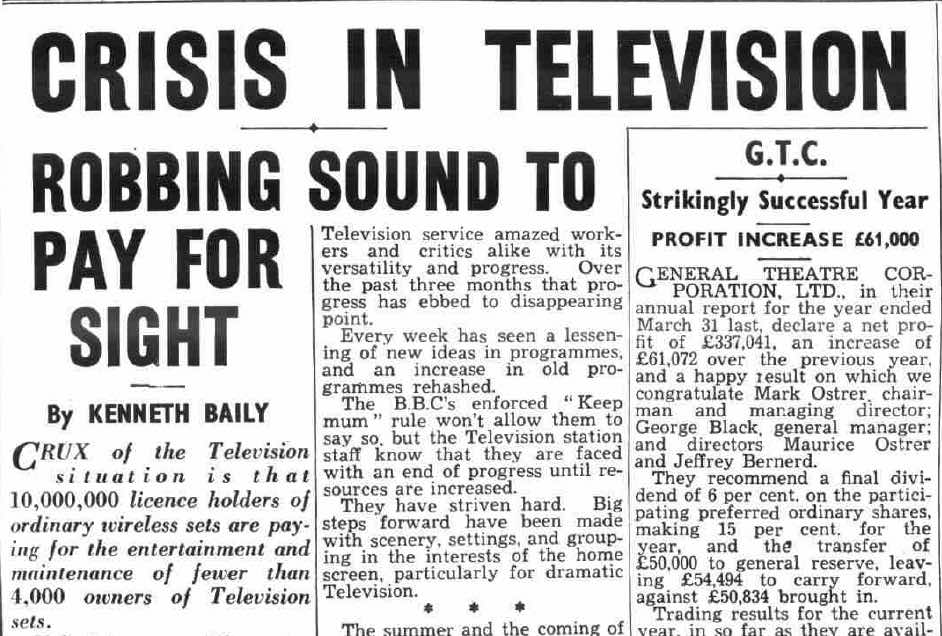OTD in early British television: 22 July 1937

John Wyver writes: ‘Crisis in television’ was, as you can see, the The Era‘s timeless headline on its weekly edition datelined Thursday 22 July 1937. Nine months after the start of the BBC’s ‘high definition’ service from Alexandra Palace, the well-informed correspondent Kenneth Baily was warning that,
To avoid a first-class broadcasting crisis in this country the Government must quickly decide who is to foot the bill for Television development on a national basis.
The crux of the issue, as ever, was finance.
There were 10 million licence holders at the time, paying for their radio services, who were significantly subsidising the few thousand, if that, television viewers. And those licence holders lived in the length and breadth of the nations, whereas television could be received only within a radius of 40 miles or so from north London. Baily elaborated:
The B.B.C. should not go on with bleeding its revenue from payers for sound to support television. It is the B.B.C.’s duty to point this out to the Government in the strongest possible terms, because Westminster doesn’t understand the danger up at Muswell Hill.
The issue was a real one, and it would not be solved before the war. But The Era was far from a neutral observer. The paper was one of two owned by the Gaumont-British Picture Corporation (G-BPC), a media conglomerate run by Isidore Ostrer. And among G-BPC’s other holdings was Baird Television Ltd, which was exploiring starting a rival television service, likely directed to cinemas, from its studios at Crystal Palace.
Baily’s interests, and those of his paymasters were to play up the problems at AP, which he did most effectively:
Al the Alexandra Palace end of the question things are lamentable. In its first six months the Television service amazed workers and critics alike with its versatility and progress. Over the past three months that progress has ebbed to disappearing point.
Every week has seen a lessening of new ideas in programmes, and an increase in old programmes rehashed… the Television station staff know that they are faced with an end of progrsss until resources are increased.
Director of television Gerald Cock knew this too, and his staff worked valiantly, and largely successfully, to develop the new medium. Budget and resource problems afflicted the service into the 1950s but ultimately Ostrer and G-BPC’s challenge was seen off, although not before numerous further negative columns in The Era.
[OTD post no. 217; part of a long-running series leading up to the publication of my book Magic Rays of Light: The Early Years of Television in Britain in January 2026.]
Leave a Reply